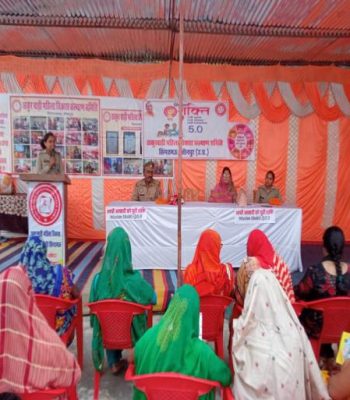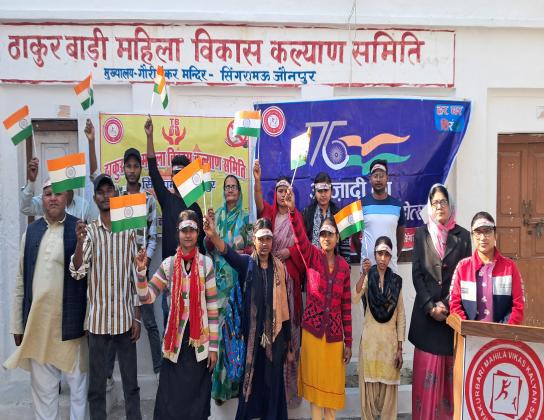

Our Priorities
Community Engagement
- Establishing effective community mechanisms and demonstrating models of implementationto promote desired change.
- Social and Behavioral Change: Implementing strategies to promote positive social and behavioral change at the community level.
- Behavior Change Communication: Promoting behavioral change through targeted communication strategies to drive positive outcomes.
- Conducting research, advocating, and influencing policies to address critical issues.
- TBMVKS’s expertise lies in conducting capacity building and orientation workshops on the PCPNDT Act for media personnel. By engaging with journalists, TBMVKS educates them on the ground realities, inspires them to highlight the critical issue in their articles and coverage, and facilitates the widespread dissemination of information related to the Act and its concerns.This has led to major publications such as The Times of India and Hindustan consistently featuring the issue on their front pages across districts in Uttar Pradesh. Additionally, local publications, journals, and magazines also play a crucial role in ensuring the public is well-informed about the alarming decline in child sex ratio and its consequences. Through this collaboration with the media across the state, TBMVKS has achieved remarkable results, as coverage of the issue has become a top priority. This, in turn, puts pressure on authorities to take strict action against offenders and intensify theimplementation of the Act in the state.
Networking and Partnerships:
- Building relationships with like-minded institutions to foster collaboration and knowledge sharing.
- Community Platform Strengthening: Enhancing the capacity of community-based platforms, including VHSNC, CPC, SMC, and Mother Committees.
- Knowledge Creation: Developing and disseminating knowledge to inform program design and implementation.
Operating Model of TBMVKS:
TBMVKS is a non-profit organization dedicated to uplifting underprivileged and vulnerable communities, with a particular focus on women and adolescent girls. Our operating model is designed to be replicable and centres around a holistic and participatory approach. They engage multiple stakeholders in dialogue and foster connections with public systems to ensure sustainability. By collaborating with the public sector and addressing domain-specific issues and challenges, they aim to create lasting positive change. Additionally, TBMVKS actively works on generating knowledge to advocate for scalability and further extend their impact .
Our expertise
- Community mobilization and engagement
- Capacity building
- IEC development
- Networking and liasoning
Our expertise
With government We have a dialogue with government for the use of Iron supplements for adolescents girls which has been successfully adopted as WIFS program for adolescents by Government of India.We are also discussing the sanitary pads waste which leads to landfill and ocean fills and its impact on health with the government for the draft Menstrual Hygiene policy at both the national and state level.
With Media TBMVKS’s expertise lies in conducting capacity building and orientation workshops on the PCPNDT Act for media personnel. By engaging with journalists, TBMVKS educates them on the ground realities, inspires them to highlight the critical issue in their articles and coverage, and facilitates the widespread dissemination of information related to the Act and its concerns. This has led to major publications such as The Times of India and Hindustan consistently featuring the issue on their front pages across districts in Uttar Pradesh. Additionally, local publications, journals, and magazines also play a crucial role in ensuring the public is well-informed about the alarming decline in child sex ratio and its consequences. Through this collaboration with the media across the state, TBMVKS has achieved remarkable results, as coverage of the issue has become a top priority. This, in turn, puts pressure on authorities to take strict action against offenders and intensify the implementation of the Act in the state.
Networking and Partnerships
Building relationships with like-minded institutions to foster collaboration and knowledge sharing.
Community Platform Strengthening
Enhancing the capacity of community-based platforms, including VHSNC, CPC, SMC, and Mother Committees.
Knowledge Creation
Developing and disseminating knowledge to inform program design and implementation

